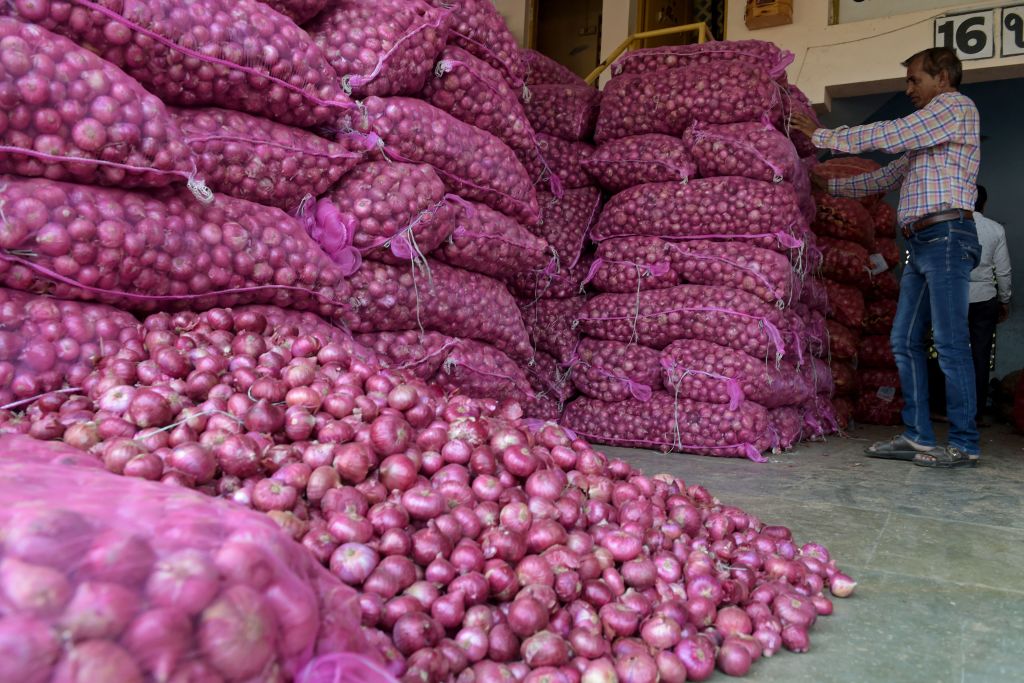- Saturday, April 27, 2024
There have been many instances of governments in India collapsing — both at federal and state levels — owing to failure to control prices of onions.

By: Shubham Ghosh
INDIA has unexpectedly prolonged its prohibition on exports of onion indefinitely, a decision likely to worsen high prices in certain international markets. India is the world’s biggest exporter of the vegetable.
Initially imposed in December, the ban was originally set to conclude on March 31. Traders had anticipated its removal, given that local prices have dropped by more than half since the limitations were put into place, and this season’s harvest is yielding fresh supplies.
Nevertheless, the Narendra Modi government issued a directive late on Friday (22) stating that the ban will persist until further notice. The move has come less than a month before the country’s general elections begin on April 19. Prime minister Narendra Modi is seeking his third consecutive term in power in these elections that will continue till June 1.
Read: India imposes 40% export duty on onions to improve domestic availability
“The extension is surprising and completely unnecessary, considering the falling prices with rising supplies from the new season crop,” an executive at a Mumbai-based export firm told Reuters on the condition of anonymity.
Onion prices in some wholesale markets in Maharashtra, India’s biggest onion-producing state, have plummeted to Rs 1,200 (£11.39) per 100 kilograms from Rs 4,500 (£43) in December, the executive added.
Read: Modi’s party acting out of panic, says India’s opposition
Nations such as Bangladesh, Malaysia, Nepal and the UAE rely on imports from India to fill domestic needs in onion supply and many of those nations have struggled with high prices since the ban was put in place.
“India’s move is allowing rival exporters to quote much higher prices since buyers have no choice,” said another executive at an export company in Mumbai.
Traders estimate that India, which has shorter shipment times than rivals such as China or Egypt for many markets, accounts for more than half of all onion imports by Asian countries.
India exported a record 2.5 million metric tons of onions in the financial year that ended on March 31, 2023.
The Indian government’s decision concerning onions is not limited to the thought that kitchens in the country should not run out of them since the vegetable is a staple in the country. But it is also related to the fact that onions are powerful enough to trigger collapse of governments, something that Modi and his ruling Bharatiya Janata Party cannot risk at this juncture.
There are examples in India’s politics.
In 1980, former prime minister Indira Gandhi of the Indian National Congress returned to power because the opposition alliance which was in power before her and lost the election that year could not tame the soaring prices of onions. In many states of India, people resort to eating onions with bread if the food becomes too expensive.
Onions are also more popular in India’s northern states that send more members to the parliament and an adverse situation there in terms of overpriced onions or their unavailability could make things more challenging for those aspiring to gain power.
In 1998, Modi’s BJP suffered electoral adversity in states such as Delhi and Rajasthan because of unhindered rise in prices of onions.
The government of Manmohan Singh, Modi’s immediate predecessor, also faced challenges over onions on more than one occasion during its decade-long rule.
Even Modi’s finance minister Nirmala Sitharaman faced a backlash from the opposition in 2019 when she remarked that she herself doesn’t eat onion when asked about the growing price of the vegetable.
But high prices are not the only factor that make onions tricky for politicians. If their prices slide, the government risks upsetting a major voting bloc — the farmers.
In 2018, farmers across the country staged protests on roads and highways and dumped quintals of onions after their prices drastically fell to as low as Re 1 a kilogram. That is quite a loss for those who grow the crop at a price of Rs 8 a kilogram. The menace of the middlemen has also emerged as a major challenge for the farmers who accuse the Modi government of not fixing a price-protection programme.
The government, keeping all probabilities in mind, hence decides to maintain a balance when it comes to onions so that an unseen adversity can be avoided.
(With Reuters inputs)
![]()